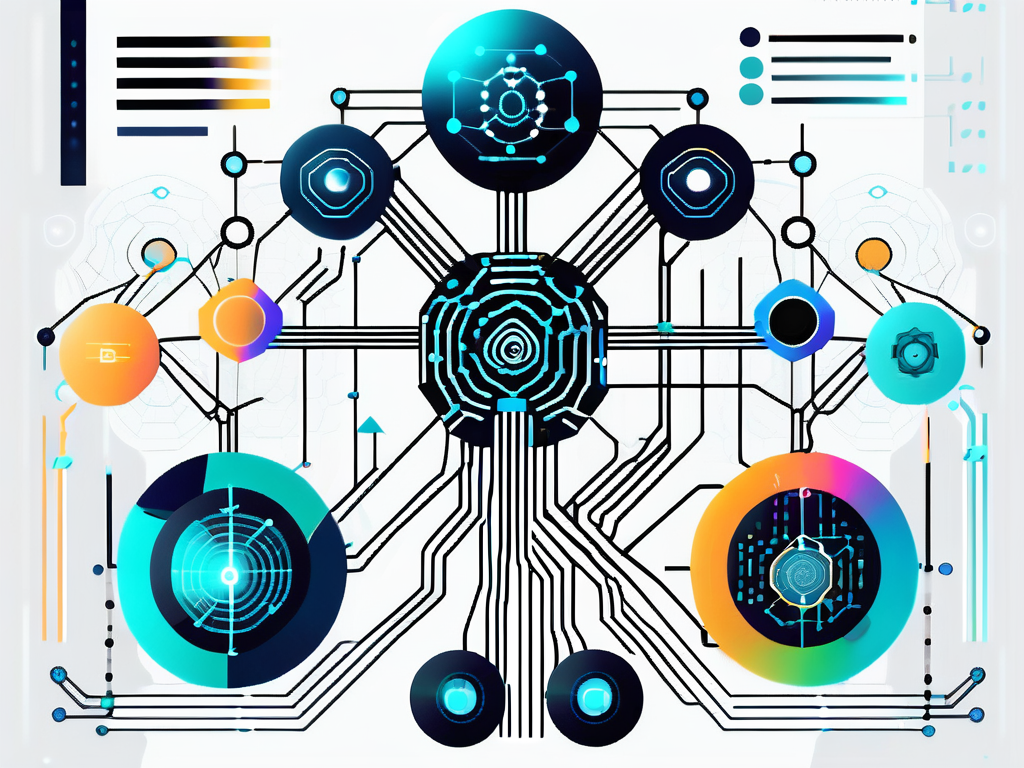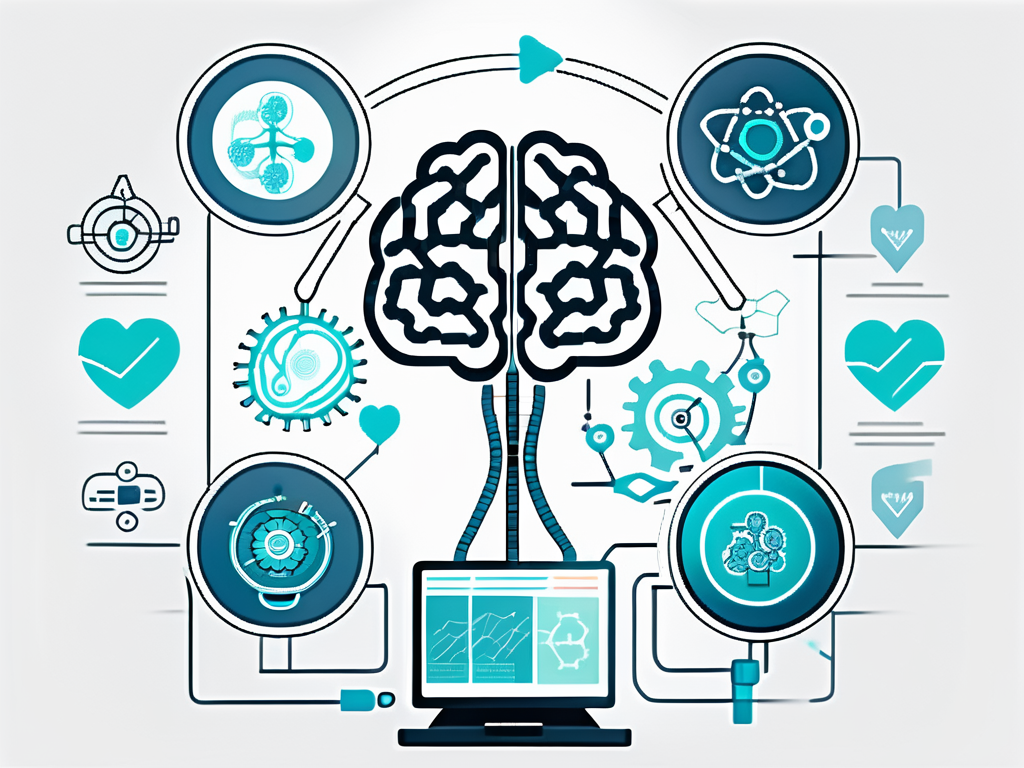In recent years, the role of artificial intelligence (AI) in healthcare has become increasingly prominent. The concept of using AI systems to assist in medical practices has shown great potential in improving clinical efficiency. By harnessing the power of data, AI can revolutionize the way healthcare professionals provide diagnosis, treatment, and patient care.
Understanding the Role of Artificial Intelligence in Healthcare
The Concept of AI in Medicine
In its simplest form, artificial intelligence refers to the ability of machines to exhibit human-like intelligence. In the context of healthcare, AI systems are designed to analyze vast amounts of medical data and perform tasks that traditionally required human cognition. This includes tasks such as interpreting medical images, diagnosing diseases, and even predicting patient outcomes.
Artificial intelligence in healthcare is a rapidly evolving field that holds great promise for revolutionising the way medical professionals deliver care. By harnessing the power of machine learning and data analytics, AI systems can sift through mountains of patient information to identify patterns and insights that may not be immediately apparent to human practitioners. This can lead to earlier detection of diseases, more personalised treatment plans, and ultimately better patient outcomes.
The Potential of AI in Improving Clinical Efficiency
With the ability to process and analyze large volumes of data quickly and accurately, AI has the potential to greatly enhance clinical efficiency in healthcare settings. For instance, AI algorithms can assist doctors in making more accurate diagnoses and treatment plans by analyzing a patient’s medical history, test results, and other relevant factors. This not only saves time but also reduces the margin for error.
Furthermore, AI technologies can also streamline administrative tasks within healthcare organisations, such as scheduling appointments, managing electronic health records, and handling billing processes. By automating these routine tasks, healthcare providers can free up more time to focus on direct patient care, leading to improved overall efficiency and patient satisfaction.
The Intersection of Data and Artificial Intelligence
How AI Utilizes Data in Healthcare
AI systems heavily rely on data to function effectively. By feeding large datasets into AI algorithms, healthcare providers can train these systems to recognize patterns, make predictions, and identify potential risks or outcomes. These data-driven insights can then be used to inform decision-making and improve patient care.
Artificial intelligence in healthcare is revolutionising the way medical professionals diagnose and treat patients. By analysing vast amounts of data, AI can assist doctors in making more accurate and timely decisions, leading to better outcomes for patients. From identifying early signs of diseases to personalising treatment plans, AI is reshaping the healthcare landscape.
The Importance of Data Quality and Quantity
However, it’s essential to consider the quality and quantity of data when implementing AI systems in healthcare. Without sufficient and reliable data, AI algorithms may provide inaccurate or biased results. It is crucial for healthcare providers to ensure that the data used is representative, up to date, and diverse to avoid any biases or limitations in the AI’s predictions.
Moreover, the ethical implications of using AI in healthcare cannot be overlooked. As AI systems become more integrated into medical practices, questions arise about patient privacy, consent, and the potential for algorithmic errors. Striking a balance between technological advancement and ethical considerations is paramount to ensure that AI benefits both healthcare providers and patients alike.
AI Applications in Clinical Settings
AI in Diagnostics and Treatment Planning
One area where AI has shown significant promise is in diagnostics and treatment planning. By analyzing medical images, such as X-rays, MRIs, and CT scans, AI algorithms can help healthcare professionals detect and interpret abnormalities more efficiently. This enables doctors to make more accurate and timely diagnoses, leading to improved patient outcomes.
Furthermore, AI is revolutionising the field of precision medicine by tailoring treatment plans to individual patients based on their genetic makeup, lifestyle factors, and medical history. This personalised approach ensures that patients receive the most effective and targeted interventions, minimising side effects and maximising treatment success rates.
AI in Patient Monitoring and Care
AI-powered systems also play a vital role in patient monitoring and care. By continuously analyzing patient data, such as vital signs, symptoms, and medication history, AI algorithms can alert healthcare providers to any changes or potential risks. This proactive approach allows for early intervention and personalized care, leading to better patient outcomes and reduced hospital stays.
In addition to monitoring individual patients, AI technology is being utilised to analyse population health trends and predict disease outbreaks. By processing vast amounts of data from various sources, including electronic health records and public health databases, AI can identify patterns and risk factors, enabling healthcare authorities to implement targeted interventions and preventive measures to safeguard public health.
Overcoming Challenges in AI Implementation
Addressing Data Privacy Concerns
As AI relies on vast amounts of sensitive patient data, it is crucial to address privacy concerns. Strict data protection measures must be implemented to ensure patient confidentiality and comply with applicable regulations. Healthcare providers and technology developers must collaborate in developing robust security protocols to safeguard patient information.
Furthermore, it is imperative for organisations to conduct regular audits and assessments of their data handling processes to identify any potential vulnerabilities or breaches. By staying proactive in monitoring data privacy practices, healthcare entities can instil trust and confidence in patients regarding the security of their personal information.
Ensuring the Reliability and Accuracy of AI Systems
Another challenge is ensuring the reliability and accuracy of AI systems. It is essential to regularly validate and update AI algorithms to ensure they remain effective and provide trustworthy results. Ongoing monitoring and evaluation of AI systems are vital to identify and rectify any biases, errors, or limitations that may arise during their implementation.
Moreover, establishing clear protocols for data collection, processing, and analysis is crucial in maintaining the integrity of AI systems. By documenting each step of the AI decision-making process, organisations can enhance transparency and accountability, thereby enhancing the overall reliability and accuracy of AI applications.
The Future of AI in Clinical Efficiency
Predicted Advancements in AI Technology
As technology continues to advance, so too will the capabilities of AI in healthcare. With improved algorithms and increased computing power, AI systems will become even more sophisticated in analyzing complex medical data. This will ultimately lead to more accurate diagnoses, optimized treatment plans, and enhanced clinical efficiency.
Furthermore, the future of AI in clinical efficiency holds exciting possibilities for remote patient monitoring. AI-powered devices can continuously collect and analyse patient data, providing real-time insights to healthcare professionals. This continuous monitoring can help in the early detection of health issues, leading to proactive interventions and improved patient outcomes.
The Long-Term Impact on Healthcare Delivery
The integration of AI in healthcare has the potential to revolutionize healthcare delivery and improve overall patient outcomes. By harnessing the power of data and artificial intelligence, healthcare providers can streamline processes, reduce errors, and deliver personalized care. However, it is essential to approach AI implementation with caution, ensuring ethical use, and prioritizing patient privacy.
In addition to improving clinical efficiency, AI can also play a significant role in medical research and drug development. By analysing vast amounts of data from clinical trials and research studies, AI algorithms can identify patterns and potential treatment options more efficiently than traditional methods. This accelerated research process can lead to the discovery of new treatments and therapies, benefiting patients worldwide.
In conclusion, the convergence of data and artificial intelligence presents a transformative opportunity for the healthcare industry. By leveraging AI’s capabilities to interpret vast amounts of data, healthcare professionals can enhance clinical efficiency, improve diagnoses, treatment plans, and patient care. As we look towards the future, embracing the potential of AI in healthcare will undoubtedly shape the landscape of medicine and ultimately benefit patient outcomes.
Ready to harness the transformative power of AI in your healthcare practice? At Clinic Marketing AI, we stand at the crossroads of healthcare, marketing, and artificial intelligence, committed to propelling your clinic into a future of enhanced clinical efficiency and patient care. Join Angelo Rosati, our CEO with a rich background in health tech and digital marketing, and the Clinic Marketing AI team in redefining the standards of excellence in your practice. Book a Call with Us today, and let’s embark on this journey to elevate Your Clinic together.



